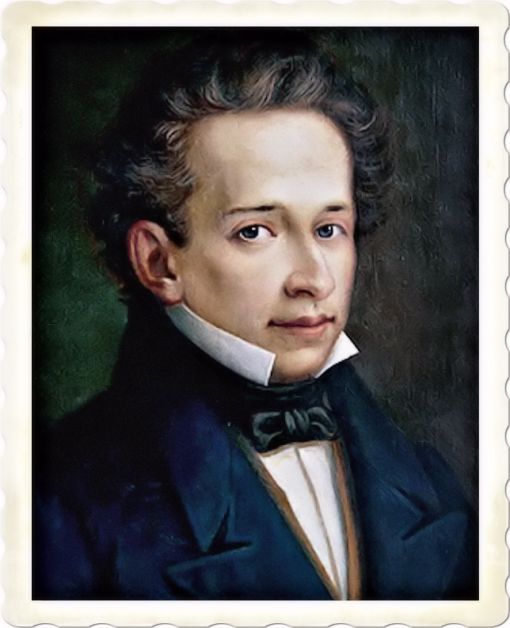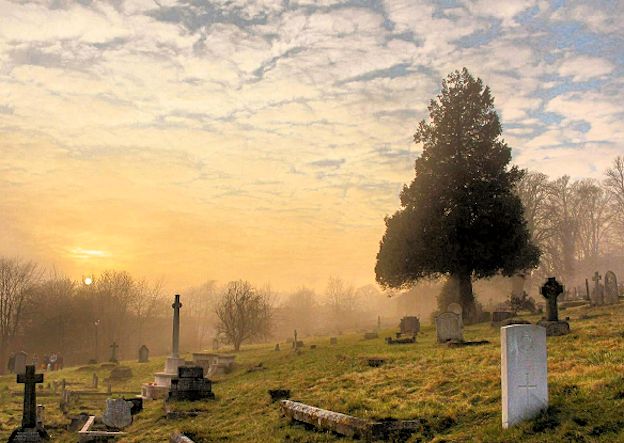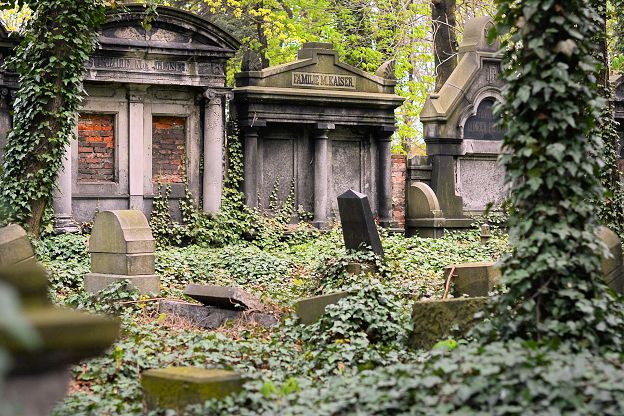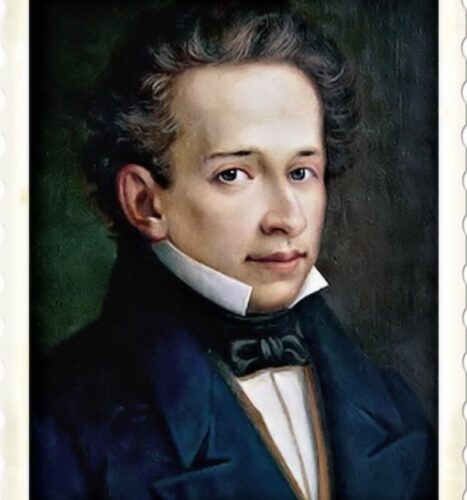
Literature living poems, some reflections on the literary themes of poetry, life and death, starting from the famous collection of Spoon River by Edgar Lee Masters and continuing with texts by Shakespeare and Voltaire.
To know how to die in one century, is to live for all centuries to come.
Giordano Bruno
Better to come panting, rosy, sweating, as if after a joyous race to climb a hill! Better to come here with a blond head, which then, when it lay cold on the pillow, your mother combed your beautiful wavy hair… slowly, so as not to hurt you.
Giovanni Pascoli
A complex and sophisticated set of chemical and physical elements, to give life to a thermodynamic machine, the human being, who serves little or nothing in the universe, and whose sole purpose is to suffer more and more needlessly.
Carl William Brown
Fratelli, a un tempo stesso, Amore e Morte ingenerò la sorte. Cose quaggiù sì belle altre il mondo non ha, non han le stelle. Nasce dall’uno il bene, nasce il piacer maggiore che per lo mar dell’essere si trova; l’altra ogni gran dolore, ogni gran male annulla.
Giacomo Leopardi
This is how Natsume Soseki expresses himself: “If you use reason, your character becomes harsher, if you immerse your oars in feeling you are overwhelmed. If you impose your will you feel uncomfortable. However, it is difficult to live in the world of men. When the discomfort of living there becomes worse, you want to move to a place where life is easier. When you realize that living is difficult, wherever you move, poetry begins, painting is born.”, and the protest, the revolt, the rebellion, the outburst, the scream, the faith, the compassion.
Carl William Brown
WHERE are Elmer, Herman, bert, Tom, and Charley, The weak of will, the strong of arm, the clown, the boozer, the fighter? All, all, are sleeping on the hill.
Edgar Lee Masters

The Spoon River Anthology Spoon River is a collection of 244 free verse poems, written by Edgar Lee Masters and published in 1915, the lyrics are written in epitaph form and narrate the lives of various fictional inhabitants of Spoon River, a small fictional town in Illinois.
These poems offer an intimate and often merciless look at the lives, passions, secrets and regrets of the characters, revealing the human conflicts, hypocrisies and disillusionments present in American society of the time, but which at the same time concern the human being in general.
The stories that are told overlap and somehow what emerges is the partiality of the points of view. Everyone tells their own story and the stories intertwine with each other, shattering into multiple versions: what is liberating is that, finally, every guest of the Spoon River cemetery can say what they want, not caring about common morality and social rules. But, free to speak, all are at the same time prisoners of death, prisoners of the hill on which the Spoon River cemetery stands.
From the grave in which they are buried, the citizens of this small American town reveal the secrets of their lives. In loose but almost regular verses, with a biting irony, they evoke village life which, beneath the thick Puritan blanket, actually hides concupiscence and vice. The main motif of the book lies in the transformation of love into its opposite, lust. Everything is deformed and dreams wither. And it is around death that the intertwining of stories of this vital and funereal plot at the same time is played out.
The collection includes nineteen stories involving a total of 248 characters covering practically all human professions. The work of this singer from Illinois has managed, in our country more than in others, to delve into the hearts of generations of readers. In Italy the success of the book, profoundly liberating and libertarian, was first due to the translation by Fernanda Pivano and then to the interpretation of Fabrizio De André, who gave birth to an extraordinary album like “Non al moneta non all’amore nei al cielo”.

The profound meaning of the Spoon River Anthology lies in its ability to explore the complexity of the human experience and to give voice to individuals who would otherwise have been forgotten or ignored. Through these voices, Masters offers a social and moral criticism of the society of the time, highlighting the tensions between external appearances and internal reality, between the aspiration to success and the emptiness of existence, between public life and private life.
Thus, the Spoon River Anthology Spoon River invites the reader to reflect on human nature, mortality, the illusions of life, and the complexity of human relationships, providing an insightful analysis of the human condition through the voices of its many characters. And this in summary is the universal message of poetry of all time.
Without any shadow of a doubt, even the most famous people will be dead in a few years and no one will remember them anymore. There is therefore only one way to give meaning to one’s memory and that is to consider poetry and the voice of writers more. We must give space to their creativity and join them, making their complaints heard. Poetry is certainly a form of religion and illusion, this is exactly what Matthew Arnold thought, especially when he believes he can, as Leopardi himself hoped in the Ginestra, create a form of solidarity and love among men.
Unfortunately, however, poetry becomes sad and uncomfortable precisely because it does nothing other than reveal to us the terrible loneliness of man, and the fleeting nature of those things that can only bring him some relief on this difficult path that is human life. In short, poetry fails to undermine what even for Kant is man’s greatest evil, the intrinsic selfishness of the species, and often does nothing other than reveal to those who frequent it the terrible loneliness of the artist, the tragic pain of man and the enormous difficulties of communication between living beings. Ultimately it is almost always a desperate attempt to communicate that gets lost in the endless and cold silences of the universe.
In any case, however you think, it must be added that writing poetry is absolutely not easy and what’s more, as Coleridge believed, no one has ever been a great poet without also being a great philosopher at the same time, and therefore it is clear that the task becomes more and more difficult.

But we who feel a little crazy, and R. Burton comforts us by reminding us that all poets are crazy, believe we can see in poetry, which, moreover, can sometimes very well be identified with prose, as T. taught us. Mann, an art form that comes close to our intentions and which nevertheless remains a useful and entertaining exercise of the word and the intellect. Furthermore, it is hoped that, as R. Kennedy argued in one of his speeches, poetry helps man, when power pushes him to arrogance, to remember his limits, and also helps him to purify himself from his misdeeds, his abuses, from his pettiness and hypocrisies.
We are therefore right in the realm of illusions, but that is not certain. Poetry, like literature in general, must also push for action, it must be a pragmatic and civil work, with intentions that can certainly also be political and social. For this reason, sometimes poetry also becomes humorous and satirical and helps our repressed ideals to come out into the open and shout words of protest, while at the same time giving us the comfort of imagination, laughter, and good humor that seeks revenge for all wrongs. and the injustices suffered. In the end it will be true glory, to the increasingly few readers the arduous sentence.
Moreover, for Plato, poetry is not a practice of reason, but is almost a form of delirium, of religion, of illusion. The late Plato of the laws will even go so far as to propose a series of restrictive and censorious rules on the activity of poets, applications that are of no use in our times where it is the market that takes care of ensuring that poetry remains on the margins of society.
In fact, poetry arouses a certain sadness and a certain restlessness that are ill-suited to the modern and technological fears of the end of the millennium. Perhaps because, as Leopardi said, poetry to be such must arouse something distant, therefore it must necessarily be melancholic and nostalgic, precisely because happiness is always either past or future, but never present. This is perhaps why contemporary man who instead would like to be happy now and immediately doesn’t like it very much.
Literature is certainly one of the arts with the most provocative potential; in fact, with language we can say anything and often words do nothing but represent in our minds all the squalor of stupid humanity. Literature can also improve our actions, as long as it does not remain just a sterile and indecent rhetorical exercise by poor academics, miserable publishers or unaware critics.
True literature is born, like every form of true art, from pain and discomfort, vice versa it may also be great, but it will not have the depth of human suffering that tries in vain to mitigate its journey with the hope of a true and fantastic love among all the men who pay a high price to stay on this tired earth and who therefore sometimes prefer to leave, although perhaps not exactly in silence.

To conclude I want to remember that the association of ideas is the basis of literary creation and not only that, in fact psychoanalysis and even science are based on this psychic procedure. Figural and metaphorical language thus draw their best creations from these somersaults of our synapses and sometimes very brilliant and significant stories arise from them, this is the case of the short passage we report, taken from the Philosophical Dictionary of Voltarie, a French philosopher of the Enlightenment period.
“The Syrians imagined that man and woman, created in the fourth heaven, dared to eat a cake, instead of ambrosia, which was their natural food. The ambrosia exhaled through the pores; while, after eating the focaccia, you had to go to the toilet. The man and the woman prayed to an angel to teach them where the said place was. Do you see, said the angel, that very small planet over there, about sixty million leagues from here? It is the toilet of the universe; go there now. they went there, and they stayed there. And since then our world has been what it is.”
If we must therefore trust the creativity of the great and famous inventor of one of the funniest philosophical novels of all time, namely Candide or Optimism, apparently we find ourselves living in shit, but deep down we must not have big reasons to complain, after all the classic product is an excellent fertilizer! Especially for our stupidity!
So what to do? Simple, we must give space to our creativity, our solidarity, our humanity and we must make our voice heard against the redundancy of the stupidest and most capitalist vanity! In a few years, none of us will still be on this earth and this is precisely why we must leave behind a legacy of creative, poetic, friendly, fraternal and brilliant ideas. Conversely, in a short time no one will know that one day, not even too distant in time, we existed.
On the same topic you can also read:
Alchemy of Suffering by Charles Baudelaire
A Child’s Garden of Verses by Robert L. Stevenson
The Book of Nonsense by Edward Lear
Poems and Thoughts on Halloween
Poems on Halloween, death and souls

